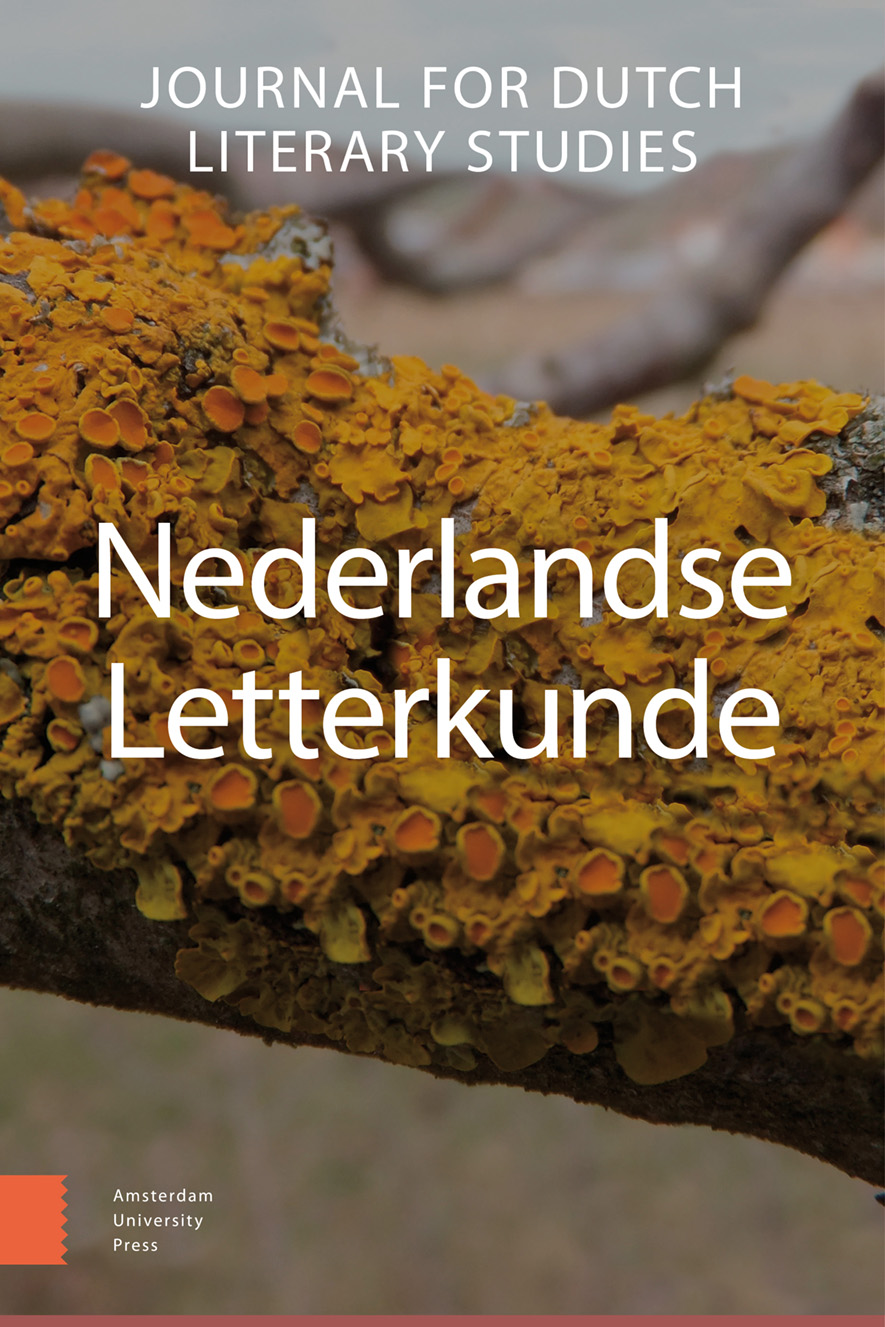- Home
- A-Z Publications
- Nederlandse Letterkunde
- Previous Issues
- Volume 28, Issue 2, 2023
Nederlandse Letterkunde - Volume 28, Issue 2, 2023
Volume 28, Issue 2, 2023
Language:
Dutch
- Artikelen
-
-
-
De verbeelding van het internet in de Nederlandse literatuur van de jaren negentig
More LessAuthors: Ruben Vanden Berghe & Siebe BluijsAbstract Taking Dutch digital pioneer Marleen Stikker’s claim that the ‘internet is broken’ as its cue, this article explores the ways in which Dutch literature from the first half of the 1990s reflects on the potential and risks of the impending digital age. Its focus is on two contemporary literary works composed within the context of – or reflecting on – the 1994 launch of De Digitale Stad (dds), an experimental free-net initiative p Read More
-
-
-
oa Aandacht voor irrelevantie. Voskuils Het Bureau als proto-databankroman
More LessAbstract In J.J. Voskuil’s monumental seven-volume novel series Het Bureau (1996-2000), main protagonist Maarten Koning devotes himself to creating an ‘atlas of folk culture’ at a research institute for Dutch culture. The novelistic cycle minutely describes the ‘microcosm’ of a scientific community and at the same time offers a broad panorama of the Netherlands during the period it covers (from the fifties to the eighties Read More
-
-
-
Een goddelijke braakbal. Maxim Februari’s Klont en de esthetiek van dataficering
More LessAbstract Maxim Februari’s Klont(2017) is arguably one of the most well-known Dutch novels on issues of datafiction and digitization. This article combines a close reading of this work with a reflection on the aesthetics of datafication in recent scholarly and artistic discourses. It demonstrates that Februari’s imaginative representation of big data as an amorphous ‘lump’ or ‘clot’ of viscous materials and metabolic processes ch Read More
-
-
-
Wat maakt elektronische literatuur (niet) toegankelijk?
More LessAbstract When digital media are described as ‘(in)accessible’, this can refer to several things: its availability, approachability, or accessibility to disabled people. As a result, electronic literature is either hailed or dismissed based on an imprecise notion of accessibility. In this article, I analyze works of electronic literature through the lens of these different understandings of accessibility in order to pinpoint the assumptions surr Read More
-
- Recensies
Volumes & issues
Most Read This Month
Article
content/journals/13845829
Journal
10
5
false
en


